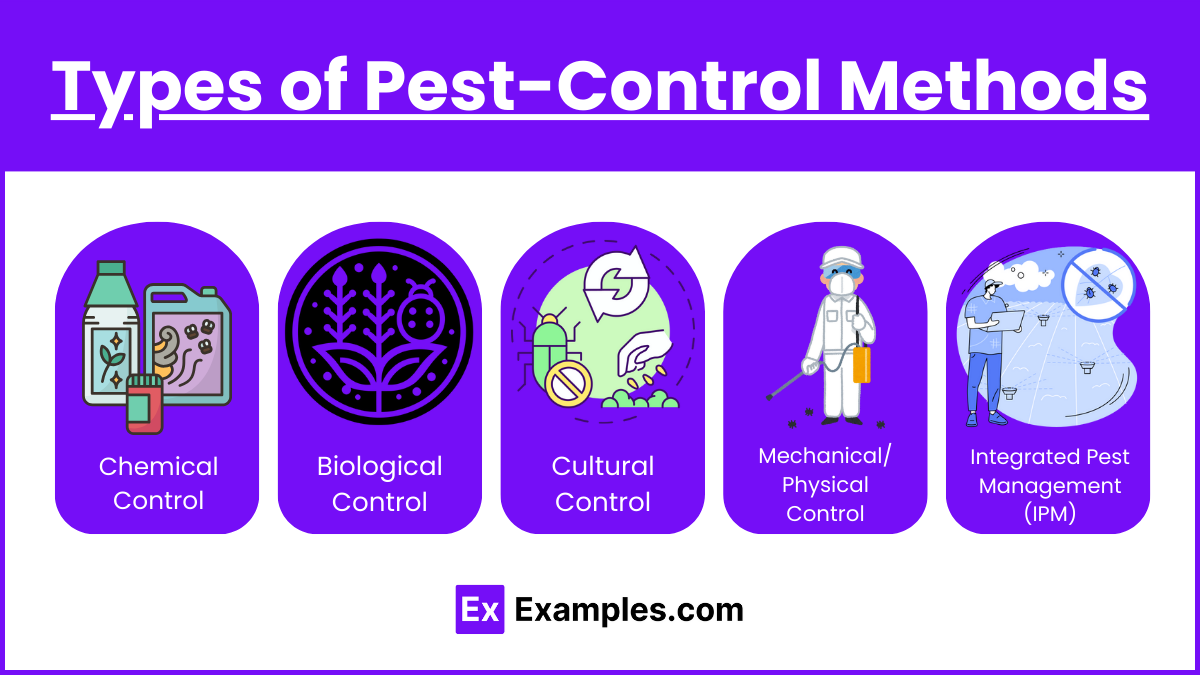Indicators on Pest Control You Should Know
Table of ContentsFascination About Pest ControlThe Single Strategy To Use For Pest ControlNot known Incorrect Statements About Pest Control Some Known Facts About Pest Control.Top Guidelines Of Pest Control
Limitations of Chemical Monitoring Have the ability to examine pest troubles, determine if management is required, and make appropriate referrals making use of IPM strategies. Recognize with various techniques of parasite administration - their benefits and limitations. Understand the value of valuable insects. It is not possibleor also desirableto rid yards of all insects.This phase talks about (IPM), a method that uses knowledge concerning parasites and their, practices, nonchemical techniques, and chemicals to manage pest problems. Extra details about IPM for details plants is included in phases that focus on those plants. Nonchemical insect control procedures are stressed in chapter 17, "Organic Horticulture." Managing birds and creatures is covered in phase 20, "Wild animals." Handling in the backyard and yard is covered in chapter 6, "Weeds." Pests in a yard or landscape might consist of pests and termites, weeds,, creatures, and birds.
Pests and weeds, nonetheless, play a duty in the. After growing a garden or establishing a lawn, the all-natural procedure of plant succession starts to improve and nonnative plants.
What we call "pests" are part of an all-natural system at job. Just human beings consider particular types insects when they happen where they are not desired.
The Pest Control Ideas
Pests susceptible to a pesticide were rapidly eliminated, leaving immune ones to reproduce and multiply. It became clear that pesticides alone would not resolve all bug troubles.
An IPM strategy permits some degree of parasites in the environment. Parasites are much less likely to survive a program that uses many various methods of reducing their populaces. Integrated bug administration was very first suggested by entomologists because pests were the very first group of parasites to show difficult to manage with chemicals alone.
parasite and host accurately. and take into consideration economic or aesthetic injury. A limit is the point at which activity ought to be taken. a therapy technique using mechanical, social, biological, or chemical controls, or a mix of these techniques. success of treatments. IPM has actually extended beyond bugs to management of all pest populaces: weeds, disease microorganisms, and animals.
What Does Pest Control Do?
Monitoring rather than removal of parasites is the goal. An IPM strategy begins with a mindful assessment of each parasite problem.
Clover growing in a lawn may be deemed an unwanted weed, but as a bean it is synthesizing nitrogen for the soil and the flowers are providing nectar to honey and various other. Tolerance for some weeds might become part of an IPM strategy. might more information be consuming the leaves of a plant, yet when they are identified as the larvae of Eastern tiger swallowtail butterflies, their damages might be endured so we can appreciate the lovely butterfly.

The 2nd most essential tool in pest monitoring is early treatment. Existing and watchful in the yard makes sure very early discovery. Reacting to issues swiftly, prior to they have time to multiply, calls for a less significant intervention. The 3rd most essential device is recordkeeping; tracking what occurs in the yard enables a gardener to recognize patterns and make notified choices.
More About Pest Control
Lots of risk-free, sensible, Read Full Article nonchemical approaches of plant defense and pest management may decrease or get rid of the need to spray. Various other approaches are most valuable when made use of with chemicals. To implement management methods appropriately and to reduce losses, garden enthusiasts need to understand the sorts of bugs that strike plants and understand pest biology.

Conducting a soil examination and using just the recommended amount of fertilizer and lime makes the most of the benefit to the plant while lessening issues associated with extreme use plant food - Pest Control. Covering the soil with numerous his explanation inches of compost shields the plant in several methods: reducing dirt water loss to dissipation, decreasing weed competition, offering nutrients, and producing an appropriate setting for earthworms and microorganisms that maintain the dirt loose for roots and break down organic product to launch nutrients
If mulch touches the trunk, it can develop a means for voles, microorganisms, and fungis to strike the plant. Do not use manure or garden compost that has not extensively disintegrated as a leading clothing due to the fact that it can encourage unwanted pests. Research recommends that tilling the dirt is destructive to dirt framework.
The 5-Minute Rule for Pest Control
If tilling is considered needed, consider doing it in the fall when the life cycles of lots of pests brings them near the surface area. At the surface area, pests come to be exposed to the weather condition in addition to birds and various other all-natural adversaries. Autumn tilling can likewise ruin pests in crop deposits. Usage healthsome and insect-free certified seeds and plants if offered.